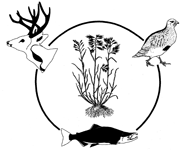Extension Wildlife & Fisheries Specialists Conferences

Triennial National Wildlife and Fisheries Extension Specialists Conference: 8th (1996)
Date of this Version
June 2006
Document Type
Article
Abstract
The global network of computers, called the Internet, offers special challenges and opportunities to educators for delivering educational programs. The opportunity of education over the Internet has been recognized almost since an interconnected network of computers was conceived. However, access to the Internet by the general public has been low; in 1995 only 4-6% of the people in the U.S. have access. Nevertheless, access has been expanding rapidly, and with the advent of the $500 network computer, is expected to increase substantially over the next few years. Information available over the Internet is also expanding rapidly. In March 1996, the Megellan search engine returned just over 13,000 hits for the keyword "wildlife." Just 3 months later, in June 1996, the same search returned almost 19,000 hits—a 46% increase. The same search engine returned approximately 32,000 hits for the keywords "endangered species." Thus, there is lots of information already available on the Internet concerning fisheries and wildlife. The Internet may be particularly relevant to extension education because people searching for information or educational programs over the Internet fit the model of helping people help themselves. The purpose of this paper is to examine (1) some of the forms of Internet education, and (2) some of the issues related to educating over the Internet. I would like to acknowledge Ken Kingsley for several of the ideas presented in this paper. I would also like to point out that I am far from an expert on this topic; I would characterize myself as a user who could not find anyone appropriate to put these thoughts together.


Comments
Published in W. Daniel Edge, ed. Proceedings of the 8th National Extension Wildlife and Fisheries Specialists Workshop: Educational Challenges for the 21st Century. [1996] Corvallis, Oregon: Oregon State University, 1998.